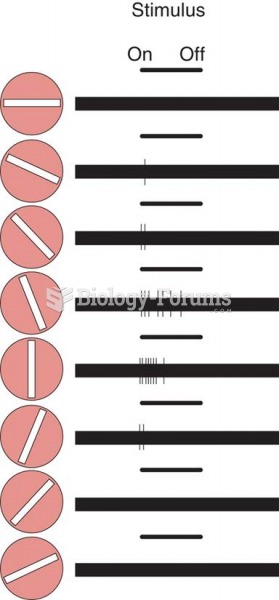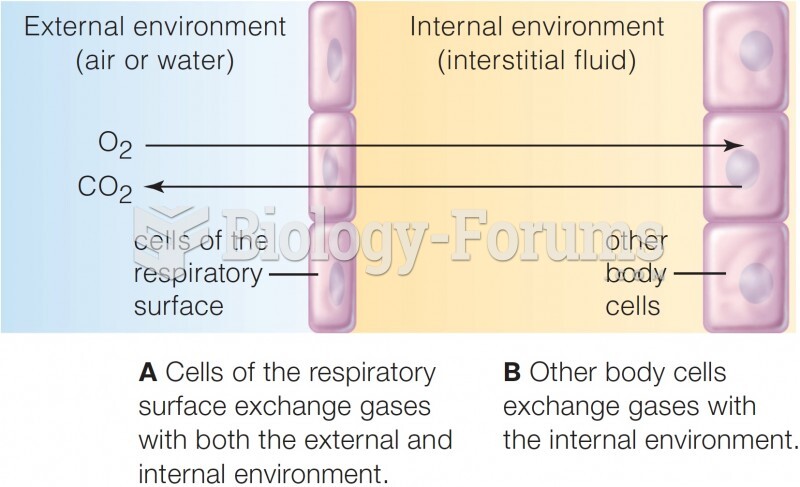|
|
|
An identified risk factor for osteoporosis is the intake of excessive amounts of vitamin A. Dietary intake of approximately double the recommended daily amount of vitamin A, by women, has been shown to reduce bone mineral density and increase the chances for hip fractures compared with women who consumed the recommended daily amount (or less) of vitamin A.
In the United States, there is a birth every 8 seconds, according to the U.S. Census Bureau's Population Clock.
Each year in the United States, there are approximately six million pregnancies. This means that at any one time, about 4% of women in the United States are pregnant.
The immune system needs 9.5 hours of sleep in total darkness to recharge completely.
The people with the highest levels of LDL are Mexican American males and non-Hispanic black females.







